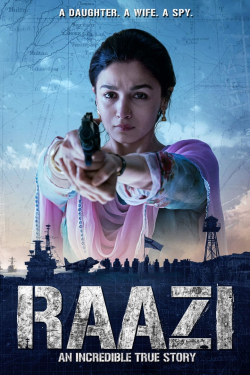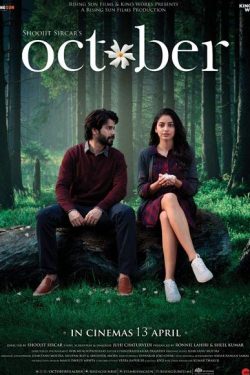Mayank Shekhar
Top Rated Films
Mayank Shekhar's Film Reviews
-
This one, directed by a relative newcomer Ravi Kumar, benefits hugely from Danny Boyle’s Slumdog Millionaire in its style of presentation—quick camera movements, pacey editing, the screen made vibrant by colourful gunk around unwashed little children… Some of these shots are Third World clichés. But more importantly the film for the most part ends up effectively dramatizing a part fictional, part factual account (reportedly based on Sanjoy Hazarika’s book). It keeps you informed and entertained.
-
…the disturbingly repetitive plot of this supposedly realistic film that’s got some top actors to show up at what must be less than their current market rates. I suspect this alignment of stars has something to do with the film’s producer, Karan Johar, who could do this society great service by writing a book on ‘how to win friends and influence people’.
-
The Bollywood script getting written within this film somewhere starts tallying with the hero’s own story. This clever move allows us to flit between a formula pic and an unconventional rom-com. Sadly this is also one of the many reasons Happy Ending’s ending comes a good half hour before everything could’ve ended, for better or worse. But, as an audience, at no point do you totally lose interest. If you keep your expectations in check, this one is definitely worth checking out in the theatre.
-
The title is borrowed from Quentin Tarantino’s Kill Bill. That homage somewhat plays out in the background score sometimes. I suspect Indian filmmakers’ intense love for Tarantino comes from their shared fondness for kitsch. In that sense you’re unlikely to get a finer kitsch-di than this.
-
The relevance of this movie then will be lost on no one in the audience. The relationship between art and morality (or the public and morality itself) has not been a linear one. We tend to go back and forth on this subject every few generations.
-
I feel for the ‘Save the Tiger’ campaign. But if a film about a tiger, such as this, was in front of you, I would suggest that you save yourself first.
-
Eventually, while walking down the aisle, after what could’ve been an exhausting experience, you realise that while you hadn’t really been rolling on the floor laughing, you weren’t quite rolling your eyes either. This is a happy film—much fun, for the most part.
-
You can as easily sense why the intentions of this award-wining screenplay are lost in the lameness on the screen. Meanwhile the villain, Kher the corporate shark, chomps on khakras and orders his white woman assistant around. This is hardly funny. The film isn’t realistic either. You just wish to know what is it that the filmmakers don’t understand better: how big businesses operate or how to make an entertaining enough film. At least if they could’ve taken care of the latter, you could attempt a free viewing on cable.
-
If the reasons above to sit through over 150 minutes of this movie are good enough for you, feel free to bang your head against the seat in the front.
-
What you’re left with then are a series of scenes stretching the film to almost 3 hours (without even a fulsome soundtrack) that tries to fit the original Hamlet—singing gravediggers, play within the play etc—into a movie with a hole. Eventually you start feeling vaguely distant and cold. I don’t know about you, but I’m sorry—I was kinda bored.

























